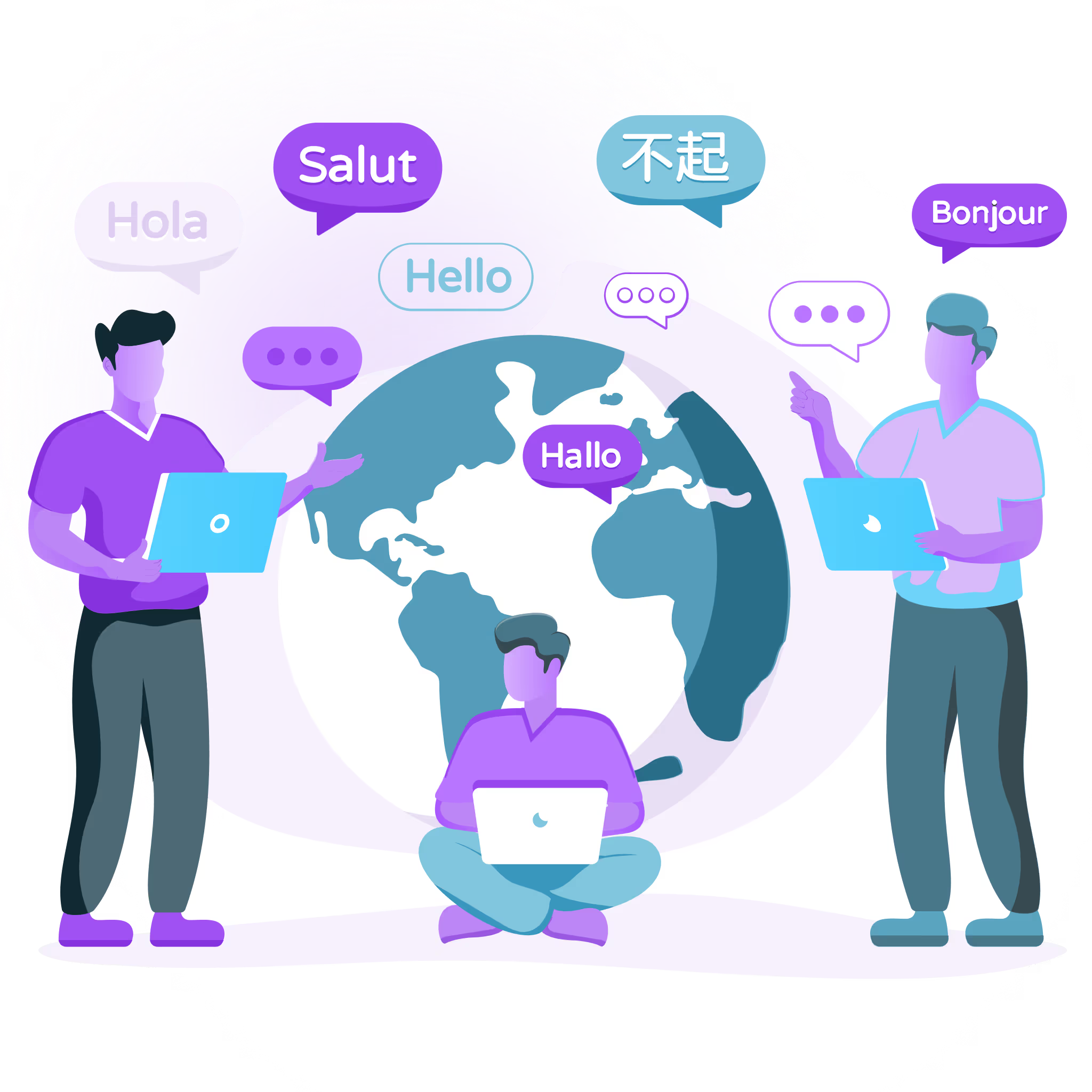If you are curious about Taiwan, you're not alone. The cultures of the world are fascinating in their diversity of customs and traditions. People in different countries will have very different beliefs and ways of doing things. It is the various cultures that make the world an exciting and colorful place, and it is always a fun experience to learn about another culture. In this post, we will discuss some fascinating facts about Taiwanese culture and why localization in Taiwan will help you succeed in the Taiwanese marketplace.
How the Taiwanese Address People Older Than Themselves
It is impolite to address older people by just their first names. For example, a young person will address the friends of their parents as Aunt (first name) or Uncle (first name). Unless they are the same age or younger, colleagues, professors, or employers are never addressed by their first names.
The Number 4 Is Bad Luck
In the Taiwanese language, the word “four” is pronounced very similarly to the word “death.” Therefore, it is considered extremely unlucky to have four of anything in your life. For instance, hospital buildings do not have a floor labeled the 4th floor (seriously, who would want to stay on that floor?). However, sometimes the number 4 can save you money - Taiwanese mobile phone carriers offer discounts to individuals who can cope with a phone number containing this unlucky number.
A Clock Is Not a Good Choice for a Gift
The word “clock” is pronounced the same way as the words “end” and “termination.” So, giving a clock as a gift implies that you are paying your last respects to the recipient.
It’s Not the Done Thing to Open a Gift in Front of the Gift-Giver
It is considered very rude to open a gift in front of the person who gave it to you; you should wait until after they leave. However, weddings are an exception. At weddings, the custom is to give a red envelope containing cash to an appointed gift receiver. That person will open the envelope immediately and count the money in front of you (probably to ensure that you haven’t been stingy!).
No Shoes Inside the House
Shoes must be removed before entering a house, so you don’t bring any dirt, bacteria, insects, etc. inside. Slippers can be worn in the house, but they must be kept for indoor use only.
Showers Are Taken Before Going to Bed
The Taiwanese prefer to take showers at night. They like to be clean and cozy before getting between the sheets. Family members are never allowed to go to sleep without taking a shower first. It’s not hygienic at all!
Food Has to Be Cooked
Food needs to be thoroughly cooked and served hot. Although Taiwanese cuisine does contain some cold dishes, most of the ingredients are cooked. Some Taiwanese people visiting the US for the first time have been quite shocked to see people eating a plate of salad!
Taiwan Is Famous for Tea
The country’s specialty is lightly roasted oolong tea. You will find a teahouse in almost every town. Most homes have a special tea cart that is used to serve guests. Tea is expertly brewed in a small pot and served up in one-ounce cups. Tea is considered to be beneficial to health, stimulating, and conducive to good conversation.
There Are Two Calendars
In addition to the Western calendar, the Taiwanese also have a lunar calendar that is used to denote the many traditional holidays. These holidays include the Chinese New Year, Chinese Valentine’s Day, Dragon Boat Festival, Lantern Festival, Full Moon Festival, and Ghost Month. The Chinese New Year is considered to be an excellent time to clear all debts.
July Is Ghost Month
According to the country’s traditions, the gate to the underground world swings open on July 1st and closes shut again on July 31st. During this month, when the gate is open, all ghosts will come out, and people need to be extra careful about what they do. For example, it’s dangerous to go swimming because there might be ghosts of drowned people intending to take people’s spirits away as they swim. Ghosts must be well-fed to keep them happy, so every July food is prepared for them.
Why You Should Consider Localization in Taiwan
Taiwan is a thriving consumer society. Status is measured by wealth and lifestyle. A family can live quite inexpensively in the countryside in a modest apartment using a scooter for transportation. People in the expanding middle and upper classes may own a car, be able to afford a spacious condominium in Taipei, eat out in expensive restaurants, and wear Western brand-name clothes. However, the culture of this modern country is very different from that of Western cultures. This means that when doing business in Taiwan, you must localize your content to take into account the country’s rich and diverse culture.
Localize Can Help You Succeed in Foreign Markets
Localize is a translation management service (TMS) that understands the importance of a high-quality translation but also how critical it is to pay attention to localization. Request a demo to see how we can help your localization in Taiwan and any other country you are planning to expand into.



%201.png)




